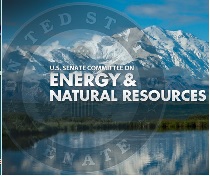Cantwell To Congress: We Need To Empower Communities With Collaborative Water Management Solutions
“We must help our communities become resilient in the management of our water resources, especially in light of climate change.”
Watch Sen. Cantwell’s full opening remarks here.
Washington, D.C. – (RealEstateRama) — Ranking Member of the U.S. Senate Energy and Natural Resources Committee Maria Cantwell (D-Wash.) in a hearing to examine Western water issues called for an improvement in providing communities with water management tools for the future.

During the hearing, Senator Cantwell said, “The science is abundantly clear that climate is changing and it is affecting our water supply. Winters are warmer and the snowpack is melting sooner. This means less water when we need it most. We must find consensus-based solutions grounded in the 21st century.”
“A GAO report also found that the number and intensities of extreme weather events, like drought, will increase. This will cost taxpayers more than $1 trillion by 2039. So I believe we must plan and we must prepare,” said Senator Cantwell. “We must help our communities become resilient in the management of our water resources, especially in light of climate change.”
“It’s costing us about a trillion dollars over the next twenty years in the expense of climate impact…can we empower these communities with the tools right now to help themselves while we’re answering the larger questions,” asked Senator Cantwell. “I hope that we will continue a strategy that pushes the best resources out to the communities as quick as possible.”
The broadcast quality video of Senator Cantwell’s opening statement can be found here.
Witness testimony will be available online immediately before the start of each hearing at on committee website.
###















